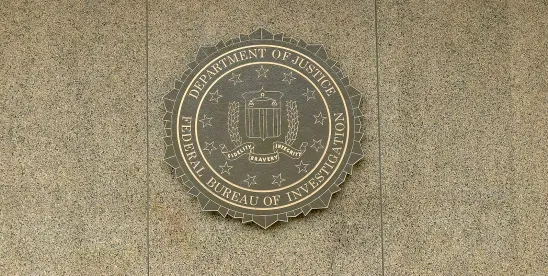On May 19, 2025, the U.S. Department of Justice (DOJ) launched its Civil Rights Fraud Initiative. This is a coordinated enforcement effort aimed at using the False Claims Act (FCA) to investigate and, where appropriate, litigate civil rights violations committed by recipients of federal funds. This effort, announced through both a press release and a memorandum from the deputy attorney general, reflects a significant escalation in the federal government’s posture toward civil rights compliance and underscores expanding legal exposure for employers, contractors, and institutions operating under federal contracts or grants.
Quick Hits
- The DOJ’s new Civil Rights Fraud Initiative treats violations of civil rights laws by federal fund recipients including contractors and grantees as potential fraud under the False Claims Act, exposing employers to treble damages and whistleblower lawsuits.
- Executive Order (EO) 14173 requires contractors and grantees to certify compliance with antidiscrimination laws; the DOJ now warns that diversity, equity, and inclusion (DEI) policies granting benefits or burdens based on race or sex may render such certifications false and legally actionable.
- The DOJ is explicitly inviting whistleblowers and third parties to report discriminatory practices and bring qui tam actions under the FCA, significantly expanding the enforcement risk for employers with federal funding.
Pursuing Civil Rights Violations as Fraud
The DOJ’s memorandum makes clear that civil rights noncompliance may now be treated as a form of fraud. Specifically, the initiative is aimed at those who “defraud the United States by taking its money while knowingly violating civil rights laws.” The DOJ identifies the False Claims Act, 31 U.S.C. § 3729 et seq., as its “primary weapon against government fraud, waste, and abuse,” noting that FCA liability includes treble damages and significant penalties.
Federal funding recipients, including contractors and universities, may be liable under the FCA when they certify compliance with laws such as Title IV, Title VI, or Title IX of the Civil Rights Act of 1964, while “knowingly engaging in racist preferences, mandates, policies, programs, and activities—including through diversity, equity, and inclusion (DEI) programs that assign benefits or burdens on race, ethnicity, or national origin.”
The DOJ draws a direct line from civil rights violations to material falsehoods in government certifications. For example, the memo warns that a university could face FCA liability if it “encourages antisemitism, refuses to protect Jewish students, allows men to intrude into women’s bathrooms, or requires women to compete against men in athletic competitions.”
EO 14173 Certification Adds to FCA Exposure
The memorandum explicitly cites EO 14173, Ending Illegal Discrimination and Restoring Merit-Based Opportunity, which President Trump issued on January 21, 2025. The order requires that recipients of federal funds certify that they do not maintain illegal discriminatory practices and affirms that such certifications are material to receiving payment.
The DOJ reiterates the EO’s rationale that “racist policies ‘violate the text and spirit of our long-standing Federal civil-rights laws.’” The memorandum goes further, warning that “many corporations and schools continue to adhere to racist policies and preferences—albeit camouflaged with cosmetic changes that disguise their discriminatory nature.” This language signals potential scrutiny not only of the substance of policies but also of their perceived intent and effect.
The combination of EO 14173’s certification requirement and the DOJ’s enforcement authority under the FCA creates a potent legal framework through which DEI-related practices may be investigated and, if deemed unlawful, penalized as fraud.
Whistleblower Litigation Encouraged
Perhaps most notable for employers is the DOJ’s clear encouragement of private enforcement. The memo cites the U.S. Congress’s delegation of authority to private parties under 31 U.S.C. § 3730 to bring qui tam suits, and the DOJ “strongly encourages these lawsuits.” In addition, the DOJ encourages anyone with knowledge of potential civil rights violations to report the information to federal authorities. This signals that the government views whistleblower litigation as an integral enforcement mechanism under this initiative.
Coordinated Federal Effort
The Civil Rights Fraud Initiative will be co-led by DOJ’s Civil Fraud Section and Civil Rights Division and supported by all 93 U.S. attorney’s offices. The initiative also includes coordination with the Criminal Division and federal agencies such as the U.S. Department of Education, the U.S. Department of Labor, and U.S. Department of Health and Human Services. The memo outlines plans for regular inter-agency meetings and joint enforcement actions, as well as partnerships with state attorneys general and local law enforcement.
Implications for Employers
This initiative creates a new legal landscape for any organization receiving federal funds. What were once internal compliance matters or employment policy debates may now create exposure to allegations of fraud. The DOJ’s expansive framing, including its reference to “camouflaged” DEI programs and undefined “racist preferences,” raises significant uncertainty for employers attempting to maintain legally compliant DEI initiatives. Certifications made under EO 14173 may create risk of civil or criminal FCA actions by the government or a whistleblower.



 />i
/>i

